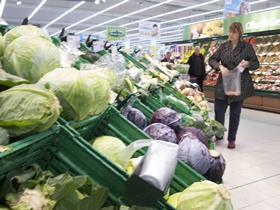
European Union member states have voted in favour of new European Commission (EC) proposals that repeal existing rules governing the marketing standards on certain fruit and vegetables.
The move, which will apply to 26 different types of fresh produce, is part of an EC plan to simplify regulations and cut red tape.
The new standards, which will come into force on 1 July 2009, apply to apricots, artichokes, asparagus, aubergines, avocados, beans, brussel sprouts, carrots, cauliflowers, cherries, courgettes, cucumbers, cultivated mushrooms, garlic, hazelnuts in shell, headed cabbage, leeks, melons, onions, peas, plums, ribbed celery, spinach, walnuts in shell, watermelons and chicory.
'This marks a new dawn for the curvy cucumber and the nobbly carrot,' said Mariann Fischer Boel, commissioner for agriculture and rural development. 'It's a concrete example of our drive to cut unnecessary red tape. We simply don't need to regulate this sort of thing at EU level, it is far better to leave it to market operators.'
Marketing standards will remain in place for apples, citrus fruit,kiwifruit, lettuce, peaches, nectarines, pears, strawberries, sweetpeppers, table grapes and tomatoes. However, these products can beexempted if they are sold with a label clearly distinguishing them from'extra', 'class I' and 'class II' fruit.
'In these days of high food prices and general economic difficulties, consumers should be able to choose from the widest range of products possible,' Ms Fischer Boel added. 'It makes no sense to throw perfectly good products away, just because they are the 'wrong' shape.'
The EU plans have not been universally welcomed, however. Germany's association of fresh fruit and vegetable producers' organisations, BVEO, warned that the repeal of these standards would lead to an explosion of different standards developed by retailers and traders.
'Consumers won't be able clearly to determine what they ought to buy,' said BVEO secretary Dr Markus Nöthen.



